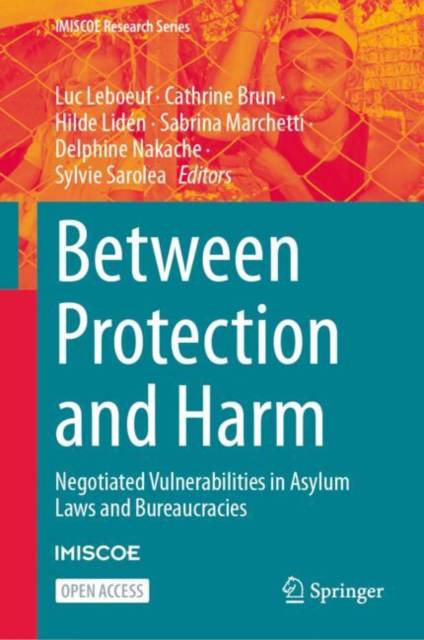
- Afhalen na 1 uur in een winkel met voorraad
- Gratis thuislevering in België vanaf € 30
- Ruim aanbod met 7 miljoen producten
- Afhalen na 1 uur in een winkel met voorraad
- Gratis thuislevering in België vanaf € 30
- Ruim aanbod met 7 miljoen producten
Between Protection and Harm
Negotiated Vulnerabilities in Asylum Laws and Bureaucracies
Omschrijving
This open access book dissects the current narratives of 'vulnerability' in asylum laws and policies, by unpacking the meanings, productions, and performances, of 'vulnerability' in different contexts, from countries of first asylum in the Global South to Europe and Canada. It discusses how the increased reliance on 'vulnerability' to guide states' replies to refugee movements improves refugee protection, while also generating contestations and exclusionary effects that may cause harm. Based on data collected as part of the EU Horizon 2020 VULNER project, the book examines existing legal and bureaucratic approaches to refugees' vulnerabilities, which it confronts with the refugees' experiences and understandings of their own life challenges. It analyses the perspectives from state actors, humanitarian organisations, and social and aid workers, as well as the refugees themselves. By emphasizing how these perspectives relate and feed into each other, the book unpacks the humanitarian replies from states and the international community to refugee movements - including in their implied exclusionary dimensions that generate contestations and implementation difficulties which, if not tackled and understood properly, risk exacerbating and/or producing vulnerabilities among refugees.
Specificaties
Betrokkenen
- Uitgeverij:
Inhoud
- Aantal bladzijden:
- 263
- Taal:
- Engels
- Reeks:
Eigenschappen
- Productcode (EAN):
- 9783031698071
- Verschijningsdatum:
- 8/10/2024
- Uitvoering:
- Hardcover
- Formaat:
- Genaaid
- Afmetingen:
- 156 mm x 234 mm
- Gewicht:
- 562 g

Alleen bij Standaard Boekhandel
Beoordelingen
We publiceren alleen reviews die voldoen aan de voorwaarden voor reviews. Bekijk onze voorwaarden voor reviews.











